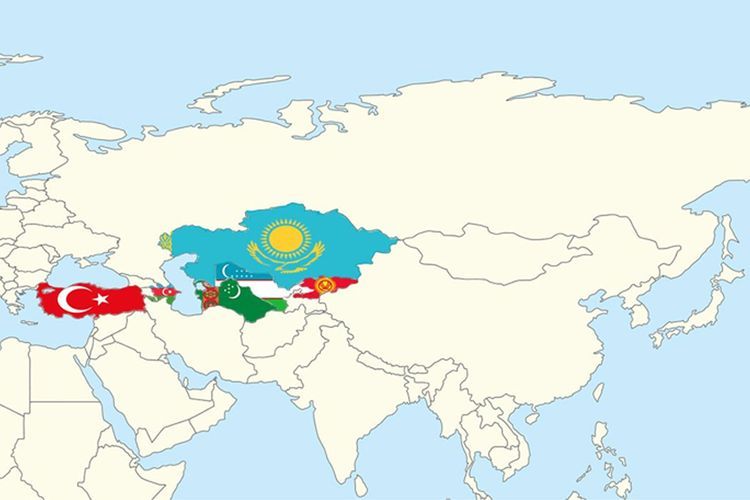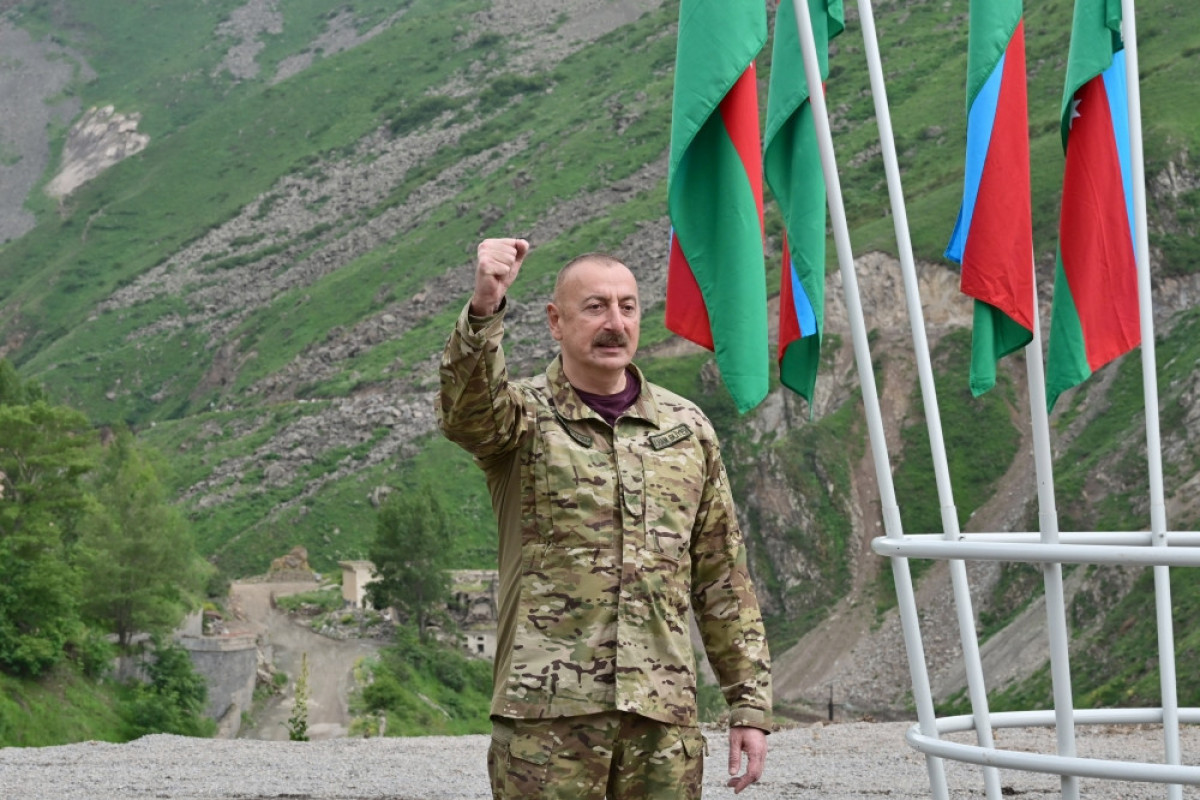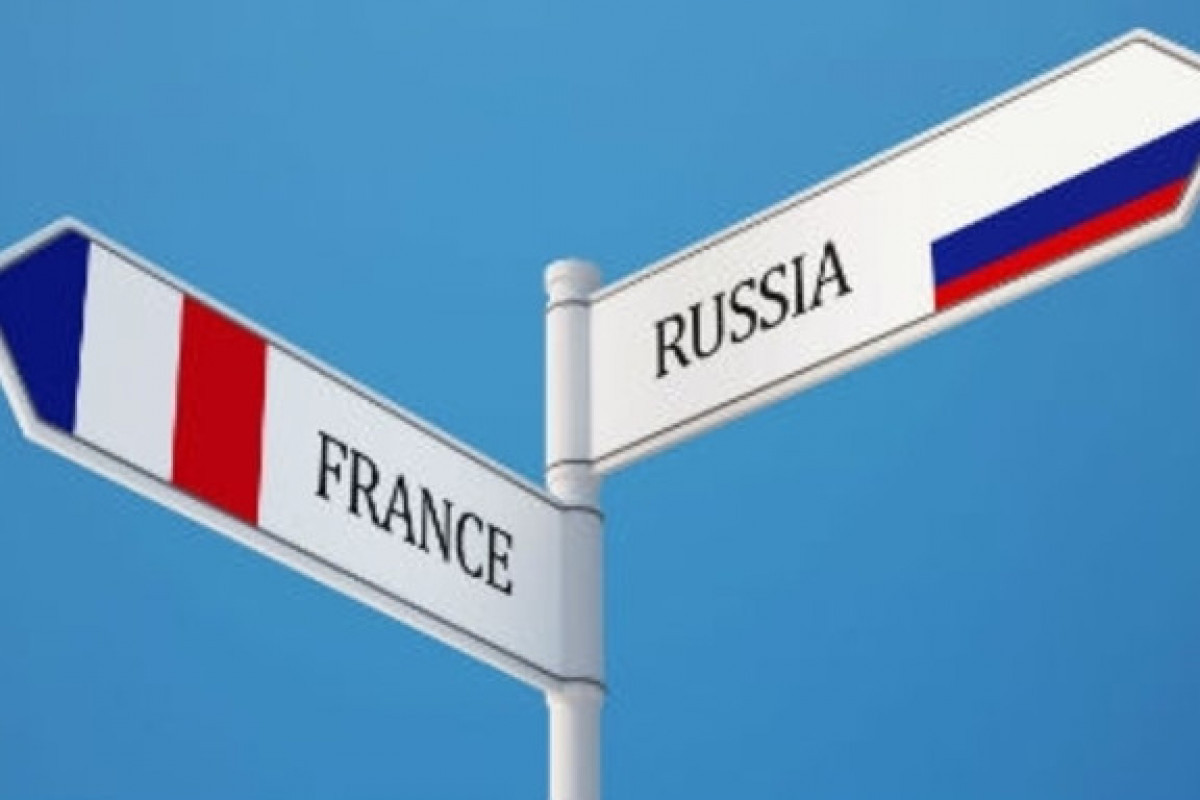Although there were disagreements between the two countries on some issues after the collapse of the Soviet Union, the Azerbaijan-Turkmenistan relations rose to the strategic partnership level during the last 5 years. The main spectrum of relations between the hydrocarbon reserves rich Caspian littoral state and Azerbaijan consists of transport-transit, logistics, and transportation of energy resources. Thus, the shortest and the most favorable way connecting the Caucasus and the Central Asia regions passes through these two countries via the Caspian Sea. This in turn transforms Azerbaijan and Turkmenistan into an important participant of such transcontinental transport corridors as ''TRACECA'', ''Lapis Lazuli'', ''Caspian Sea – Black Sea'', ''East-West''.
During the last 5 years, the contracts signed between Turkmenistan and Azerbaijan, as well as the Alat International Sea Trade Port commissioned in 2018 and Turkmenistan’s Turkmenbashi International Sea Port have got increased the trade turnover between the two countries to a noticeable extent, as well as have got significantly decreased the period of transportation of goods. Azerbaijan’s favorable geographical position has brought this country to the condition of a window opening on Europe for Turkmenistan. The Baku-Tbilisi-Kars railway infrastructure has turned in an important means for transportation of the Turkmen goods to Turkey and Europe, as well as in the reversed direction. This serves for development perspectives of the Turkic Council by creating opportunities for implementation of transportations via this line by such members of the Turkic Council as Uzbekistan and Kyrgyzstan being mainly the resources’ and the raw materials’ exporter. Thus, the BTK railway has caused a reduction to 15 days of the period of cargo transportation from one end to another end of the Eurasian continent, while this in its turn takes twice less time compared to sea transportations in the same direction and costs twice less money compared to the air transportations along the same route.
The Lapis Lazuli international route commissioned in 2018 reveals the region’s positive transport potential by ensuring implementation of various kinds of goods from Afghanistan (in transit through Turkmenistan, Azerbaijan, and Georgia) to Turkey and in the opposite direction, and by turning Turkmenistan’s and Azerbaijan’s (despite the fact that these two countries don’t have access to open ocean) geographical positions into a strategic advantage. The connection of the Lapis Lazuli route to the Baku-Tbilisi-Kars railway line brings the costs down to a minimum by increasing the export potential of the countries through which the route passes.
The Convention regarding the legal status of the Caspian Sea signed in 2018 has resulted in growth on the international interest in the Caspian Sea region rich in oil and gas resources and has created new perspectives for the integration of this region into the interregional economic area.
Currently, another issue being on agenda of relations between the two countries is the introduction to the European market of the Turkmen gas via the Southern Gas Corridor in construction of which Azerbaijan also has a significant participation share. For this purpose, the project of 300 km long Trans-Caspian Gas Pipeline that should be laid along the bottom of the Caspian Sea is under consideration. From the viewpoint of diversification of Turkmenistan’s export of energy resources, this project has an attractive nature and the existing infrastructure of Azerbaijan is one of the important factors that preconditions the profitability of Turkmenistan’s cooperation with us. By means of this pipeline project, Turkmenistan mainly dependent on the Chinese market (approximately 80% of total energy export) can offer its supplies to various potential energy consumers. If the Trans-Caspian Gas Pipeline project is implemented, Turkmenistan and Azerbaijan will become the gas suppliers having the gas reserves sufficient for the satisfaction of approximately 7-10% of Europe’s annual demand for natural gas (450-500 billion cubic meters).
Another issue between the two countries is joint activity on joint construction, ownership, and use of fiber-optical communication lines through the depth of the Caspian Sea on the Azerbaijan-Turkmenistan route. Thus, the project, carried out within the framework of the Azerbaijan Digital Hub program, serves for optimization of internet-communication lines (Digital Silk Road) between Europe and Asia. By conducting the project, Azerbaijan also demonstrates its intention on being not only transportation and energy but also a digital center between Europe and Asia. The economic potential of the project is great and if Azerbaijan can involve investment in this project, it will bring benefits to the region, as well as Turkic Council countries in the field of information-communication technologies.
All mentioned transportation projects will increase the possible profits of Azerbaijan and Turkmenistan from the non-oil sector, as well as bring Azerbaijan a profile of reliable partners in the region. At the same time, having the shortest and cheapest road for delivering Azerbaijani products to Asian markets and Turkmenistan products to the European market through these routes is also contributing to an increase of the export potential of the countries.
Joint use of transportation networks between Azerbaijan and Turkmenistan and Kazakhstan-Turkmenistan-Iran, and Uzbekistan-Turkmenistan-Iran-Oman railway networks, as well as all above-mentioned project create new transit opportunities for two countries, situated between Central Asia-Middle East. It increases transit opportunities of Turkic Council states, situated in a central position between East and West, and bring dividends in economic, political, transportation-transit, and digital spheres, in its turn. Thus, the possible development of cooperation between Azerbaijan and Turkmenistan in different fields strengthens the role of Turkic geography in the international arena.
Elmar Yusifli





 ANALYSIS'>
ANALYSIS'>
